Coronavirus: Use common sense to see loved ones outdoors – Dominic Raab
- Published
"Use common sense" when meeting up outdoors - Dominic Raab
People in England can meet another person from outside their household as long as they are outside and stay 2m apart, the government has confirmed.
Foreign Secretary Dominic Raab said people should "use some common sense" and cannot visit others at their home.
The new rule is part of a 50-page guidance document to be published by the government later.
On Sunday, Boris Johnson announced a "conditional plan" to begin lifting England's coronavirus lockdown.
Scotland and Wales - which have their own powers over lockdown and have not changed the advice to stay at home - rejected No 10's new "stay alert" slogan, while Labour's Sir Keir Starmer said the PM's new guidelines were "unravelling" and "a bit all over the place".
Mr Johnson will give a statement to Parliament at 15:30 BST on Monday, with more information expected on a Covid-19 alert system, use of face masks, and the return of professional football.
He will then lead the government's daily Downing Street press briefing which, due to the Commons statement, has been moved to 19:00.
Are you going back to work today? Email haveyoursay@bbc.co.uk, external
In his address on Sunday, the PM said people who could not work from home - including those in the manufacturing and construction industries - should be "actively encouraged to go back to work" but avoid public transport. Mr Raab confirmed that this will apply from Wednesday.
People will also be allowed to take unlimited amounts of outdoor exercise, sit or sunbathe in parks, drive to other destinations to exercise and play sports with household members from Wednesday.
The Welsh Government has urged people not to drive across the border into Wales.
Rules on meeting family
The changes in guidelines will also allow two people from different households to meet in a park if they stay 2m (6ft) apart.
Asked about that advice on BBC Breakfast on Monday, Mr Raab said: "So we've said that as long as you go out of home, for the park, for exercise, whatever it may be, you can go with members of your own household.
"If you're out in the park and you're 2m apart... and use some common sense and you socially-distance, you can meet up with other people."
Asked if someone could meet more than two people at different times, for example their mother in the morning and father in the afternoon, Mr Raab said: "Outside in the outdoors, staying 2m apart, yes."
However, the UK government put out a clarification saying people can only meet one person outside at a time - not two people, such as both parents, at the same time.
It comes after Mr Raab incorrectly told the Today programme that someone could meet both their parents at the same time "if there's 2m apart".
Mr Raab was also pressed on whether people could meet others in a garden or driveway. "We are not moving to a stage where we say that households can mix inside the home," he said.
"So just to be absolutely clear, people cannot mix within the homes… and that advice is not changing."
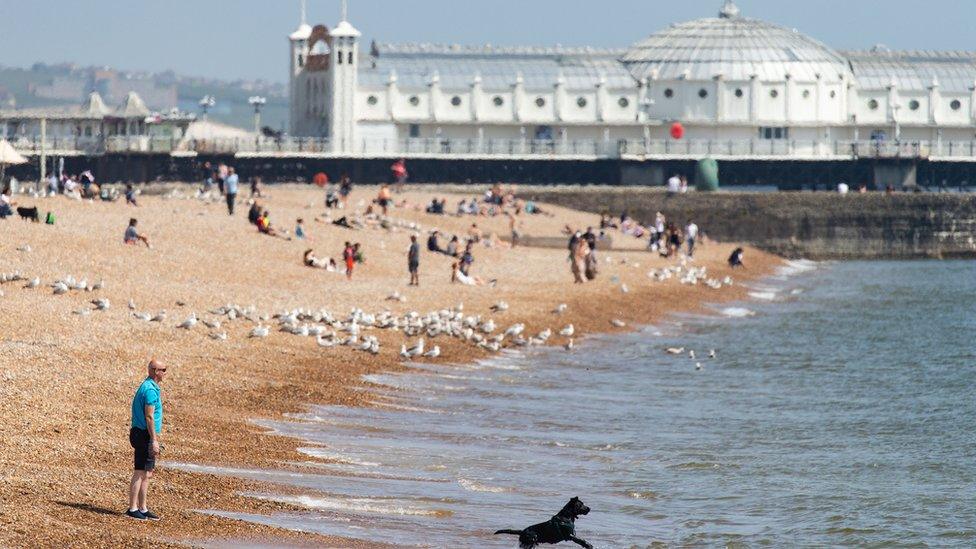
Sunny weather saw people spend time outside over the Bank Holiday weekend
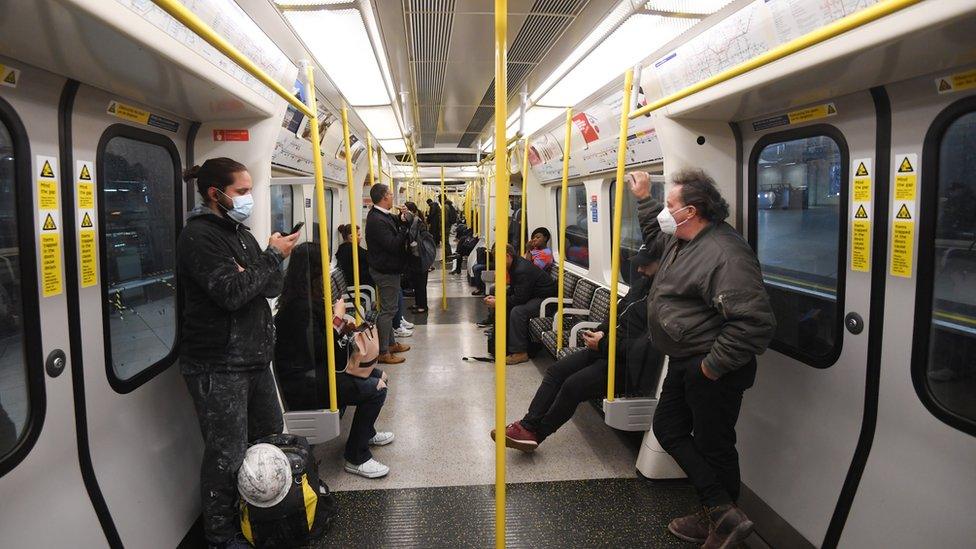
Transport for London issued guidance on Monday saying "face coverings should be used"
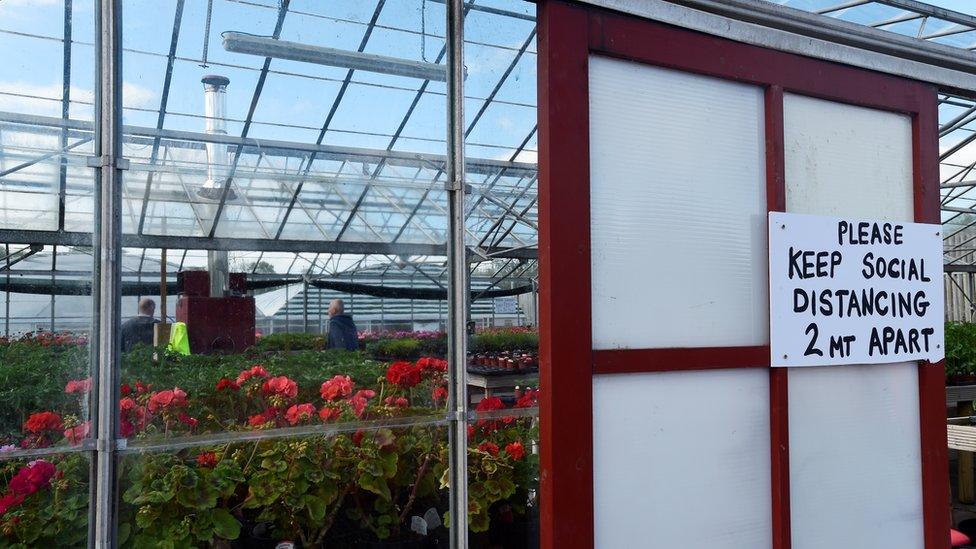
Garden centres reopened in Wales on Monday
People who have been identified as vulnerable - those who are being shielded - are still strongly advised to stay at home and anyone who has symptoms should self-isolate.
When outdoors, people are much less likely to come into contact with an infected surface, while any tiny particles of virus (called aerosols) would be dispersed by fresh air.
So the main remaining danger comes from large droplets, and staying 2m away from other people - as social distancing guidelines recommend - should overcome that.
On Sunday, Mr Johnson announced a new Covid alert system with five levels that would influence how quickly the lockdown - which was first announced on 23 March - could be changed. Level five is the most critical, and the UK is currently ready to move from level four to three.
Boris Johnson: "We are taking the first careful steps to modify our measures"
Mr Johnson said the government would "modify" lockdown measures over three "careful" steps through to July. The first step begins on Wednesday.
Mr Johnson said he hoped by the second step - "at the earliest by 1 June" - there could be a phased reopening of shops and some primary aged pupils could return to school.
The third step could see some hospitality businesses and other public places reopen - "if the numbers support it" - but not earlier than 1 July.
The prime minister stressed this was all "conditional" on a series of "big ifs" and he would not hesitate to "put on the brakes" if there are further outbreaks of the virus.


But Sir Keir said Mr Johnson's speech raised "as many questions as it answers".
Labour's shadow business secretary Ed Miliband and shadow employment rights minister Andy McDonald said they were "deeply concerned" about the recommendation that those people unable to work from home should go back to work.
In a letter to Business Secretary Alok Sharma, they said urging staff to return to work with 12 hours' notice and no guidance on how they could stay safe was "irresponsible and wrong".
They called on the government to publish its guidance and ensure it addressed measures such as safe social distancing in the workplace and mandatory Covid-19 risk assessments.

'Trying to pull off the impossible'

The prime minister is effectively trying to pull off the impossible. He wants to try to restart normal life, while keeping the virus at bay with limited means to do so.
With no vaccine, the government is reliant on containing any local outbreaks.
But the problem is that even with the extra testing that has been put in place over the past month, there are big holes in the UK's ability to suppress the virus. It takes too long to get test results back - several days in some cases - and those most in need of regular testing, such as care home staff for example, are still reporting they cannot always access tests.
Our ability to trace the close contacts of infected people remains unknown - the piloting of the system, which involves the use of an app and army of contact tracers, has just started on the Isle of Wight. It means we are effectively fighting this "invisible killer" with one hand behind our back.
We are not alone in struggling, similar problems are being encountered by other countries. But we are still some way behind the best prepared and equipped, such as Germany and South Korea.

'Stay at home'
Mr Johnson said he had consulted "across the political spectrum, across all four nations of the UK" and that his plan was a "a general consensus on what we could do".
But the leaders of Scotland, Wales and Northern Ireland have refused to adopt England's new message of "stay alert, control the virus, save lives".
Wales' health minister said there had not been a "four-nations agreement" on the new "stay alert" message and that the advice to "stay at home" in Wales was unchanged.
Scottish First Minister Nicola Sturgeon said there should be a "simpler" message and stressed the "stay at home" slogan would continue to apply in Scotland.
The Northern Ireland Executive said it would "consider its plan for a phased, strategic approach to recovery" at a meeting on Monday, with politicians there emphasising the "stay at home" message ahead of Mr Johnson's address on Monday.

SCHOOLS: When will children be returning?
LOOK-UP TOOL: How many cases in your area?
EXERCISE: What are the guidelines on getting out?
SCHOOLS: When will children be returning?

Some union leaders and business groups have criticised the plans, and called for further clarity.
The National Education Union (NEU) said the idea that some schools could reopen from 1 June was "nothing short of reckless" as the infection rate is still "far too great".
Meanwhile, TUC general secretary Frances O'Grady said the PM's statement would cause workers "a lot of confusion and anxiety", and urged No 10 to provide "clear direction" for staff and employers in the form of "tough" new safety rules.
The British Chambers of Commerce said businesses needed their "practical questions answered so they can plan to restart, rebuild and renew".
It comes as a further 269 people have died in the UK after testing positive for coronavirus, taking the total number of deaths recorded to 31,855. , external Latest figures from Scotland released on Monday showed a further five people had died with the virus.
The government missed its target of 100,000 tests a day for the eighth day in a row, with 92,837 tests on Saturday.
In other developments:
John Apter, the national chairman of the Police Federation of England and Wales, said the PM's plans risk being a set of "loose rules that are left open to interpretation" and difficult to enforce
A limited number of jury trials in England and Wales will resume with social distancing rules from next week at selected courts, including London's Old Bailey and Cardiff Crown Court
Further details are expected on the government's plans to impose a 14-day quarantine on people flying into the UK, which the prime minister said yesterday would not apply between France and the UK "at this stage"
The justice secretary has indicated there may be changes to lockdown rules, external which has led to weddings being cancelled due to the coronavirus

CORONAVIRUS QUIZ: Fact or fiction?
BRILLIANT BAKES: Recipes we've turned to in lockdown

- Published10 May 2020
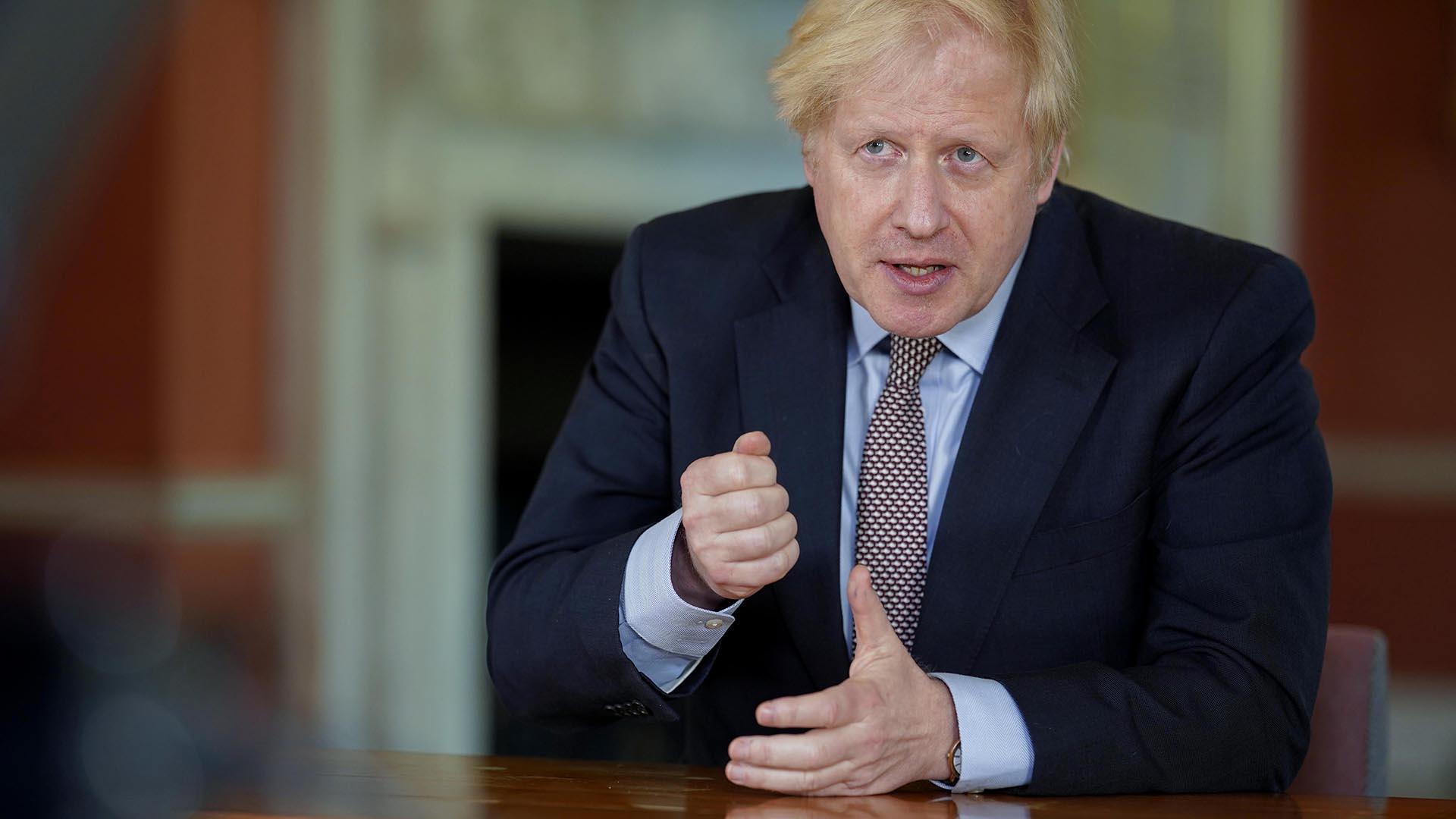
- Published10 May 2020
- Published10 May 2020
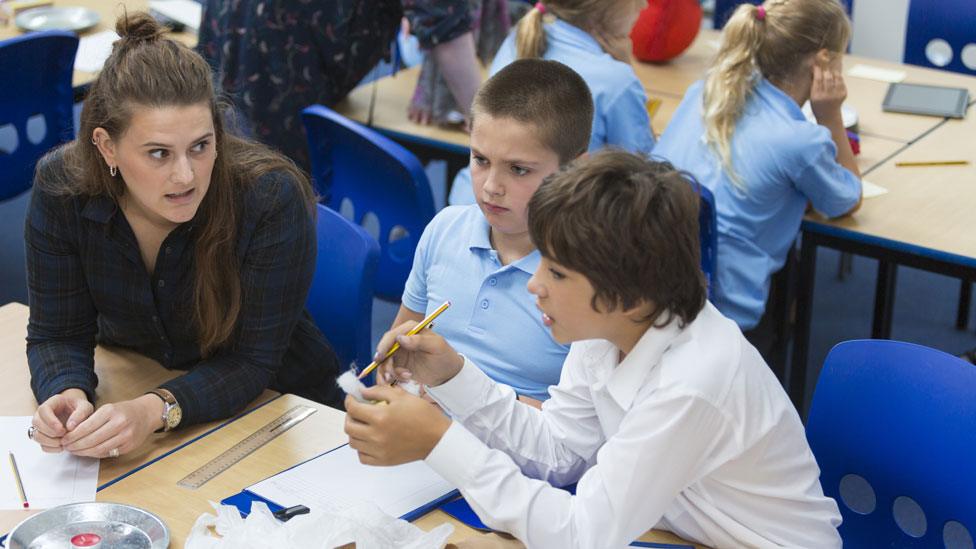
- Published25 January 2022
